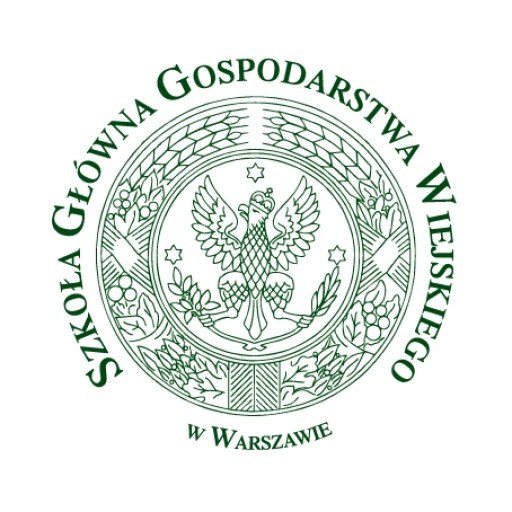Photos of university / #politechnika_gdanska
The Engineering in Energy Technologies program at Gdansk University of Technology is a comprehensive and interdisciplinary degree designed to prepare students for careers in the rapidly evolving energy sector. The program provides a solid foundation in the fields of thermodynamics, electrical engineering, renewable energy sources, and energy management, combining technical knowledge with practical skills necessary to address contemporary challenges in energy production, distribution, and utilization. Students will explore innovative technologies such as wind, solar, bioenergy, and geothermal energy, gaining insights into sustainable solutions and environmental impact reduction. The curriculum emphasizes the development of engineering competencies, including system design, energy analysis, and project management, enabling graduates to lead and innovate in energy-related industries. Throughout the program, students engage in laboratory exercises, industrial internships, and real-world projects that foster hands-on experience and problem-solving abilities. The program prepares graduates for employment in sectors such as energy production companies, engineering consulting firms, and public administration, or for pursuing further research or specialized postgraduate studies. With the increasing importance of sustainable development and renewable energy, this degree offers a competitive edge in the global labor market, empowering students to contribute meaningfully to the transition towards cleaner and more efficient energy systems. The unique combination of technical expertise, environmental awareness, and practical experience makes the Engineering in Energy Technologies program at Gdansk University of Technology a highly valuable qualification for aspiring engineers committed to making a positive impact on the future of energy.
The Energy Technologies program at Gdansk University of Technology offers a comprehensive curriculum designed to prepare students for innovative careers in the rapidly evolving energy sector. This program provides a multidisciplinary education that integrates principles of mechanical engineering, electrical engineering, thermodynamics, and environmental science to equip graduates with the skills necessary to develop sustainable and efficient energy solutions. Students will explore modern methods of energy generation, including renewable sources such as wind, solar, biomass, and hydropower, alongside traditional fossil fuels, focusing on their technological, economic, and ecological aspects. The coursework emphasizes the design, analysis, and optimization of energy systems, coupled with advanced knowledge of energy storage, transmission, and distribution. Throughout the program, students gain practical experience through laboratory exercises, project work, and internships with industry partners, which reinforce theoretical understanding and foster innovation. Key topics include the fundamentals of energy conversion technologies, demand management, smart grids, energy management systems, and the role of information and communication technologies in optimizing energy use. The program also covers the latest developments in energy policy, market dynamics, and environmental impact assessments, preparing graduates to work effectively in multidisciplinary teams and in various sectors such as manufacturing, utilities, consulting, and research institutions. Graduates will be capable of designing, implementing, and managing modern energy systems that promote sustainability and resilience. The curriculum is regularly updated to reflect technological advances and industry needs, ensuring that students acquire relevant skills and knowledge to meet global challenges related to energy security and climate change. Upon completion, students receive a recognized bachelor's degree in Energy Technologies, opening pathways to advanced studies or immediately entering a competitive labor market where they can contribute to innovative energy solutions and sustainable development initiatives worldwide.
Accepted proof English of proficiency: FCE or CAE, IELTS 6+ or TOEFL 79+
The financing of the Energy Technologies program at Gdańsk University of Technology is primarily supported through a combination of university funds, governmental grants, and European Union funding programs aimed at promoting innovation and sustainable development. Students may have access to various scholarships and financial aid programs designed to alleviate the cost of education, including merit-based scholarships, social scholarships, and subsidies related to tuition fees. The university collaborates with industry partners and regional development agencies to secure funding for research projects, infrastructure improvements, and student internships, enhancing the overall educational experience and practical training opportunities. Additionally, students enrolled in the program might benefit from external funding opportunities such as Erasmus+ mobility grants, which support student exchanges within European countries. The university's internal scholarship system and external funding options aim to create an accessible and equitable environment for students pursuing studies in Energy Technologies. The financial resources allocated for this program ensure that students receive high-quality education grounded in innovative research, modern laboratories, and cutting-edge technological equipment. Moreover, the university's strategic initiatives focus on sustainable development and energy efficiency, which are often supported by national and international grants dedicated to renewable energy, smart grids, and environmentally friendly technologies. These investments not only finance the infrastructure and research activities but also contribute to the enhancement of the academic staff’s expertise and the development of new curricula aligned with current industry needs. Overall, the funding structure for the Energy Technologies program reflects Gdańsk University of Technology’s commitment to fostering sustainable and advanced engineering education, equipping students with the skills necessary for the dynamic energy sector.
Energy Technologies at Gdansk University of Technology is a comprehensive program designed to prepare students for careers in the development, implementation, and management of energy systems. The curriculum covers a wide range of subjects including renewable energy sources, thermal and electrical power engineering, energy efficiency, and sustainable development. Students gain practical skills through laboratory exercises, project work, and internships, enabling them to address real-world challenges in the energy sector. The program emphasizes the application of modern engineering tools and innovative technologies to optimize energy production and consumption, aiming to contribute to a sustainable energy future. Graduates are prepared to work in various sectors such as energy production companies, consulting firms, research institutions, and governmental agencies. The program also offers opportunities for students to participate in international projects, exchange programs, and collaborations with industry partners, enhancing their global perspective and employability. Faculty members are actively involved in cutting-edge research, facilitating a learning environment that integrates academic knowledge with practical experience. The department maintains state-of-the-art laboratories and research facilities, providing students with a hands-on approach to learning. Courses include fundamentals of thermodynamics, fluid mechanics, electrical circuits, renewable energy technologies, and energy management strategies. The program aims to develop not only technical competencies but also soft skills such as teamwork, communication, and problem-solving. Upon graduation, students receive an Engineer's degree, qualifying them for professional practice in energy-related fields. The curriculum is regularly updated to incorporate the latest technological advances and regulatory developments in the energy sector, ensuring that graduates are well-prepared to meet contemporary industry demands and contribute to energy transition initiatives worldwide.







